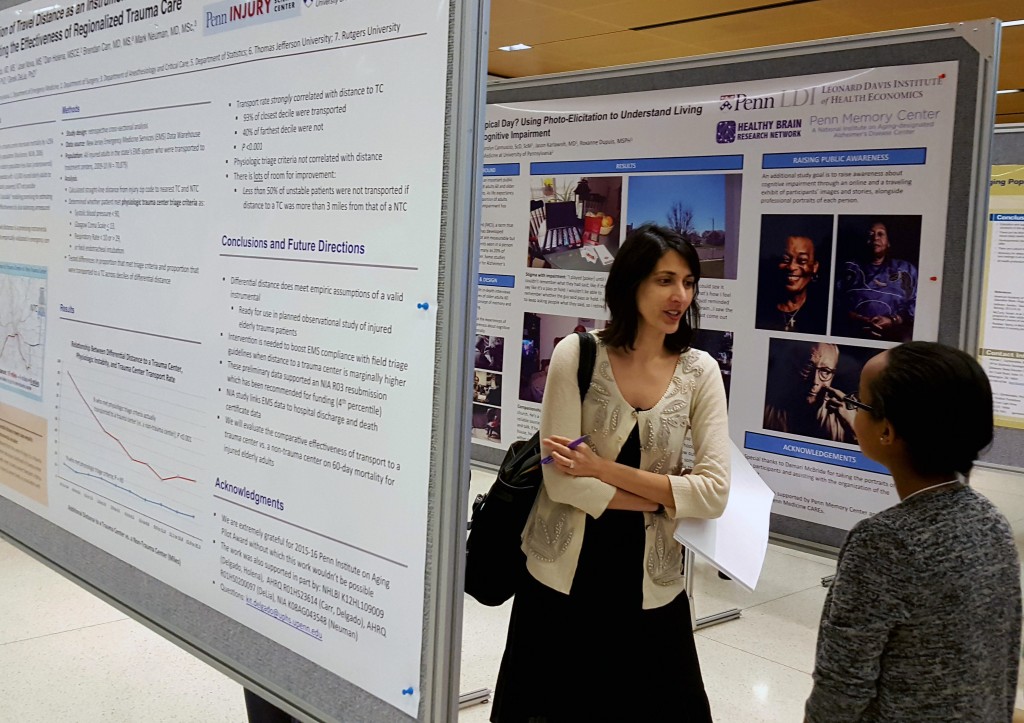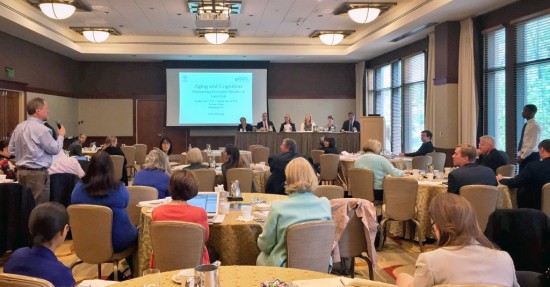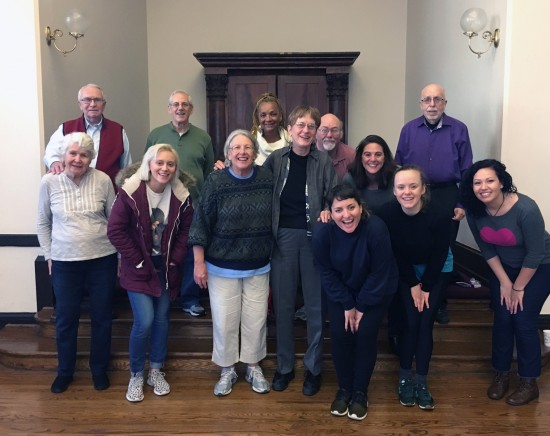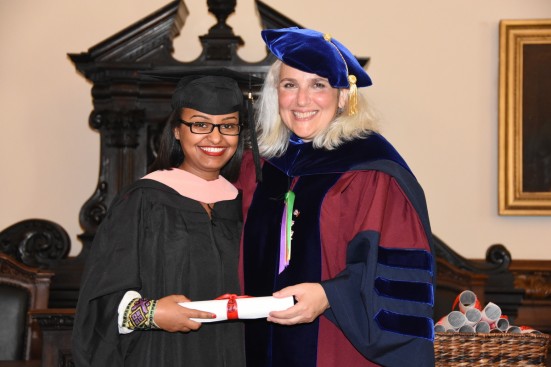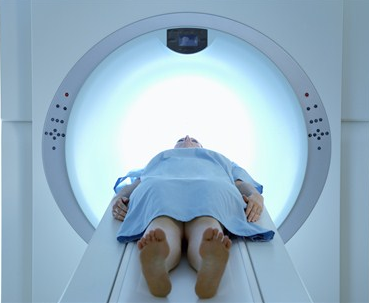Tigist Hailu, Penn Memory Center coordinator for diversity in research and education, presented her photo elicitation project on living with mild cognitive impairment at today’s Penn Institute on Aging Retreat.
Latest News
Using whealthcare to prevent fraud, increase wealth, promote cognitive health
Claire Jones was enjoying a comfortable retirement after years working as a bookkeeper and keeping a close eye on her own personal savings. But just a few months after “winning the lottery,” she had lost hundreds of thousands of dollars.
It was a scam that, in her younger years, Ms. Jones would have sniffed out immediately. But as she aged, changes to her fluid intelligence and social and emotional processing turned her into a perfect target for scam artists.
Stories of financial fraud with elder victims are common, though many cases are preventable. Dr. Jason Karlawish, co-director of the Penn Memory Center, outlined a plan he calls “whealthcare” in his latest Forbes column.
Memory Café grant will fund guest artists, improved café environment
Memory Café, a monthly pop-up café for Penn Memory Center patients and their caregivers, has secured six months of funding from Christ Church Neighborhood House.
With the grant, the Penn Memory Center will be able to invite local artists to each month’s café. Upcoming performances include cellist and Curtis Institute alumna Arlen Hlusko and Theatre of Witness creator Teya Sepinuck.
Additionally, guests will have an improved “café experience” through a set of new café tables and entertainment options such as adult coloring books, said Christ Church Neighborhood House Program Director Abigail Guay. A wider selection of coffee and snacks — previously donated from Kitchen Gia — will be purchased from a variety of local vendors.
‘Great promise’ in Alzheimer’s research, but ‘we’re not there yet’
Scientifically, great progress has been made in understanding how Alzheimer’s changes the brain, Penn Medicine physician Jason Karlawish told a 2016 Penn Alumni-Faculty Exchange audience. But despite research findings that suggest potential new approaches, there have been no dramatic changes in either the diagnostics or therapies currently available for the brain destroying disease.
Karlawish, MD, Co-Director of the Penn Memory Center, Director of Penn’s Neurodegenerative Disease Ethics and Policy Program (NDEP), and a Senior Fellow at the Leonard Davis Institute of Health Economics (LDI), was one of a number of top Penn experts taking part in April’s day-long series of health research-related presentations for the 50th anniversary gathering of the Penn Class of 1966.
Ralston Center launches ‘Age-Friendly West Philadelphia’ initative
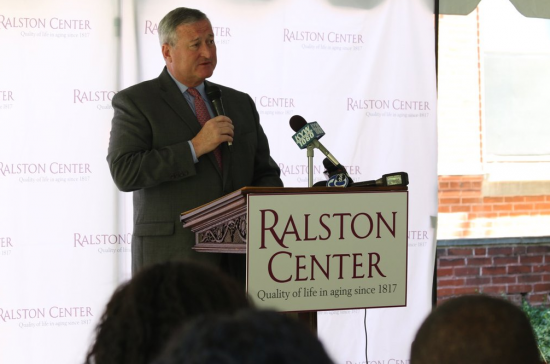
Philadelphia Mayor Jim Kenney gives the keynote address at the announcement Tuesday. (Credit: Twitter.com/PhillyMayor)
The Ralston Center and its partners announced on Tuesday the launch of the “Age-Friendly West Philadelphia” initiative, a collaborative partnership two years in the making.
Services for West Philadelphia’s senior citizens are “plentiful,” but people don’t know where to look or whom to trust, said Ralston Center CEO Joseph Lukach. Ralston Center, a nearly 200-year-old organization dedicated to improving the health and quality of life of Philadelphia’s seniors, hopes to work with its 40-plus partners organizations — including the Penn Memory Center — to change that.
“Older West Philadelphians are more likely to live in poverty, to be obese or in poor health, and to face limitations with activities of daily living than older adults living elsewhere,” organizers wrote in the Ralston Center annual report.
Save the Date: Improv Night with Leah’s Legends
“Leah’s Legends,” a team of five talented friends of the Penn Memory Center, is set to debut its inaugural improv show after months of lessons and practice.
Join us in laughing with and at Leah’s Legends 7 to 8 p.m. Sunday, June 12, at Christ Church Neighborhood House.
This event is free, but please RSVP to Felicia Greenfield by emailing felicia.greenfield@uphs.upenn.edu or calling 215-662-4523 by June 8.
Despite lack of Alzheimer’s cure, diagnosis necessary to prevent ‘series of disasters’
A diagnosis of Alzheimer’s disease will not lead to a prescription for a “miracle cure,” but older adults with memory problems still need to see a specialist to avoid preventable issues.
Dr. Jason Karlawish, co-director of the Penn Memory Center, gave the keynote address Saturday at “Alzheimer’s: The New Normal,” a conversation on cognitive aging, Alzheimer’s disease, research, and caregiving.
“I don’t have a miracle cure,” he said. “I don’t even have a drug for Alzheimer’s that can dramatically slow the course of the disease. You’re right. But what I can tell you is that if you don’t understand where you’re at and what to expect in the future, you, the person with Alzheimer’s disease, are a setup for a series of disasters,” including financial exploitation, hospitalization, and communication issues with patients’ families.
Watch a portion of his speech below:
Coordinator Tigist Hailu earns Master of Public Health degree
Tigist Hailu, Penn Memory Center coordinator for diversity in research and education, has successfully graduated from the University of Pennsylvania’s Master of Public Health (MPH) Program.
“The Penn Memory Center and the Penn Health Brain Research Center take great pride in Tigist Hailu receiving her master’s in public health from the University of Pennsylvania,” said Dr. Jason Karlawish, co-director of the Penn Memory Center. “She’s learned skills and talents that are accelerating and expanding the Centers’ efforts to raise awareness and improve the cognitive health and well-being of older adults and their families. She’s an inspiration.”
Hailu oversees the Penn Memory Center’s multicultural recruitment with a particular focus on the African-American community in NACC and other research studies with the Penn Prevention Research Center’s Healthy Brain Research Network Center.
“I have been so impressed with Tigist’s creativity and determination,” said Dr. Carolyn Cannuscio, Hailu’s advisor in the MPH program. “Her work is so clearly motivated by a deep compassion for and commitment to her patients. She is a model for all our students.”
Tigist graduated from Franklin & Marshall College with a bachelor’s in public health psychology and Africana studies.
Penn ADCC director helps honor first Alzheimer’s researcher to win Söderberg Prize

Dr. John Q. Trojanowski (center) and others listen to Queen Silvia of Sweden (second from left). Photo courtesy of the Swedish Society of Medicine.
Earlier this month, Penn Alzheimer’s Disease Core Center Director Dr. John Q. Trojanowski presented a lecture on “Experimental Transmission of Tau Pathology: Implications for Diagnosis and Therapy” at the 2016 Söderberg Prize Seminar at the Swedish Society of Medicine in Stockholm, Sweden.
This Seminar recognized Dr. Kaj Blennow, the first Alzheimer’s disease researcher to receive this award. Queen Silvia of Sweden, an avid Alzheimer’s disease research advocate, was in attendance to present the award.
Dementia imaging study could lead to PET scan Medicare coverage
A new clinical trial will likely lead to a change in physician management of dementia patients, said Penn Memory Center Co-Director Dr. David Wolk.
The $100 million Imaging Dementia – Evidence for Amyloid Scanning (IDEAS) study, funded by Medicare, is testing the clinical value of PET scans, which can currently cost patients $5,000, according to an article published on www.philly.com. Medicare decided in 2013 not to cover the scans in most clinical cases, even though they can identify misformed protein found in Alzheimer’s patients. The decision could be overruled if IDEAS shows that more scans could lead to fewer expensive hospitalizations.
- « Previous Page
- 1
- …
- 68
- 69
- 70
- 71
- 72
- …
- 91
- Next Page »
